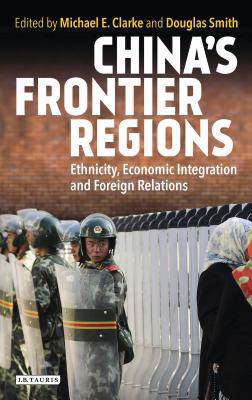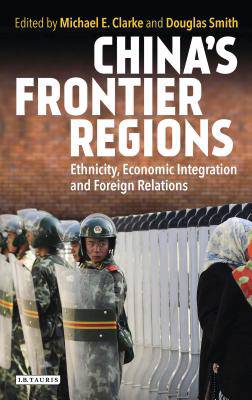
- Afhalen na 1 uur in een winkel met voorraad
- Gratis thuislevering in België vanaf € 30
- Ruim aanbod met 7 miljoen producten
- Afhalen na 1 uur in een winkel met voorraad
- Gratis thuislevering in België vanaf € 30
- Ruim aanbod met 7 miljoen producten
Zoeken
China's Frontier Regions
Ethnicity, Economic Integration and Foreign Relations
€ 296,95
+ 593 punten
Omschrijving
China has traditionally viewed her frontier regions--Zxinjiang, Tibet, Inner Mongolia and Yunnan--as buffer zones. Yet their importance as commercial and cosmopolitan hubs, intimately involved in the transmission of goods, peoples and ideas between China and it west and southwest has meant they are crucial for China's ongoing development. The resurgence of China under Deng Xiaoping's policy of 'reform and opening' has therefore led to a focus on integrating these regions into the PRC (People's Republic of China). This has important implications not only for the frontier regions themselves but also for the neighbouring states, with which they have strong cultural, religious, linguistic and economic ties. China's Frontier Regions explores the challenges presented by this integrationist policy, both for domestic relations and for diplomatic and foreign policy relations with the countries abutting their frontier regions.
Specificaties
Betrokkenen
- Uitgeverij:
Inhoud
- Aantal bladzijden:
- 224
- Taal:
- Engels
- Reeks:
Eigenschappen
- Productcode (EAN):
- 9781784532581
- Verschijningsdatum:
- 30/03/2016
- Uitvoering:
- Hardcover
- Formaat:
- Genaaid
- Afmetingen:
- 140 mm x 218 mm
- Gewicht:
- 408 g

Alleen bij Standaard Boekhandel
+ 593 punten op je klantenkaart van Standaard Boekhandel
Beoordelingen
We publiceren alleen reviews die voldoen aan de voorwaarden voor reviews. Bekijk onze voorwaarden voor reviews.







